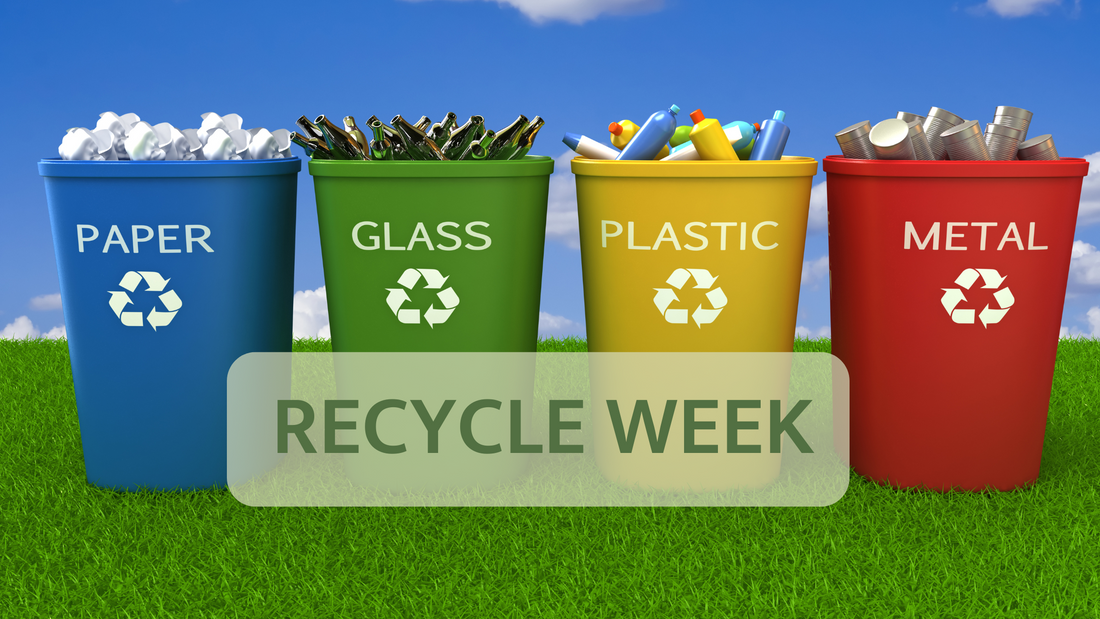This year’s theme, "Act Together, Recycle Together," emphasises the collective responsibility we all share in reducing waste and maximising recycling efforts. Whether you’re an individual, business, or community, everyone can make a meaningful impact. Here’s why Recycle Week 2024 matters, what you can do to contribute, and how recycling is evolving to meet new environmental challenges.
Why Recycling Matters in 2024
Recycling is one of the simplest and most effective ways to reduce carbon emissions and conserve natural resources. The impact is substantial—recycling just one ton of paper can save up to 17 trees and over 7,000 gallons of water. But in 2024, the importance of recycling goes beyond resource conservation:
1. Reducing Landfill Use: Landfills are a significant source of methane, a greenhouse gas far more potent than carbon dioxide. Recycling diverts materials from landfills, reducing methane emissions and slowing climate change.
2. Conserving Resources: By recycling materials like plastic, glass, and metals, we reduce the need for virgin raw materials, which require energy-intensive extraction processes.
3. Energy Efficiency: Recycling often uses less energy than producing new products from raw materials. For example, recycling aluminum saves up to 95% of the energy needed to create it from scratch.
How Recycling is Evolving
The landscape of recycling has changed dramatically over the past few years. New technologies and methods are increasing the efficiency of the recycling process and expanding the range of materials that can be recycled. Here's a look at some innovations driving the recycling revolution:
1. Advanced Sorting Technologies: From AI-powered waste sorting to robotics, automation is helping to reduce contamination in recycling streams. This improves the quality of recycled materials, making them more viable for manufacturers.
2. Chemical Recycling: Traditional recycling methods often degrade plastics, but chemical recycling can break them down into their original components, allowing for higher-quality reuse. This technology is still developing but holds great promise for tackling the global plastic waste problem.
3. Circular Economy Initiatives: More businesses are embracing a circular economy model, where products are designed with their end-of-life in mind. From recyclable packaging to reusable components, companies are closing the loop and minimizing waste.
How You Can Participate
Recycle Week 2024 encourages everyone to take small yet significant actions to boost recycling efforts. Here are a few simple ways you can get involved:
1. Know What to Recycle: Many people are still unsure about what can and cannot be recycled. Take the time to learn the guidelines in your area and avoid "wish-cycling"—the practice of putting non-recyclable items into the recycling bin in the hopes they’ll get recycled.
2. Reduce Contamination: Contamination, such as food residue or non-recyclable materials, can cause entire batches of recyclables to be rejected. Always rinse containers before recycling and check for mixed materials, like plastic-coated paper, that might not be recyclable.
3. Get Creative with Reuse: Recycling isn’t just about tossing items into a bin—it’s also about finding ways to reuse or repurpose materials. Could that old jar be used for storage? Can you donate items instead of throwing them away?
4. Advocate for Change: Whether it's pushing for better recycling infrastructure in your community or supporting businesses that prioritize sustainable practices, advocating for systemic change is a powerful way to make a difference.
Business and Community Engagement
Businesses play a crucial role in recycling efforts. Many companies are joining the movement by designing products that are easier to recycle or made from recycled materials. If you're a business owner or part of a larger organization, consider how you can enhance your sustainability efforts. Host a recycling drive, reduce single-use plastics in the office, or switch to more sustainable packaging solutions.
Local governments and communities can also contribute by providing accessible recycling facilities, educating the public about waste management, and investing in technologies that increase recycling rates.
Looking Ahead
As we enter an era of heightened environmental awareness, Recycle Week 2024 is an opportunity to reflect on how far we’ve come—and how much more we can do. Every action, no matter how small, contributes to a larger, collective effort to protect our planet.
By coming together and focusing on the impact of recycling, we can reduce waste, conserve resources, and fight climate change. So, this Recycle Week, make a pledge to recycle more, waste less, and inspire others to do the same. After all, when we act together, we make a bigger difference.
Let’s recycle for the future!

